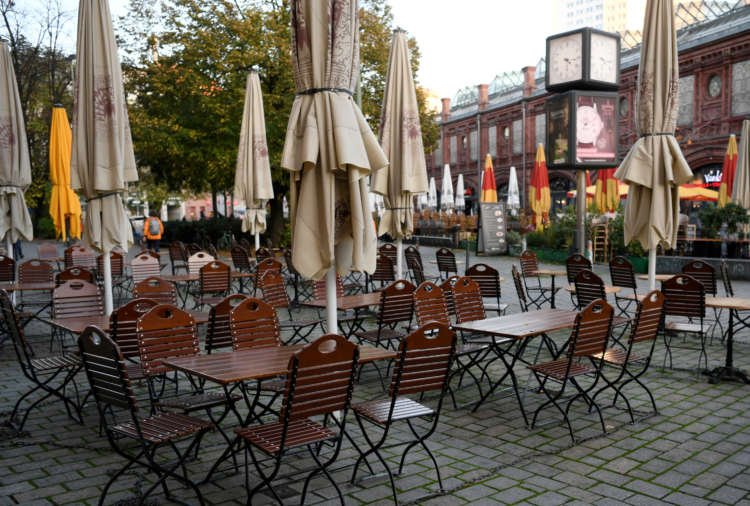Euro zone business activity shrank in January as lockdowns hit services
Published by linker 5
Posted on January 22, 2021
3 min readLast updated: January 21, 2026

Published by linker 5
Posted on January 22, 2021
3 min readLast updated: January 21, 2026

By Jonathan Cable
LONDON (Reuters) – Economic activity in the euro zone shrank markedly in January as lockdown restrictions to contain the coronavirus pandemic hit the bloc’s dominant service industry hard, a survey showed.
With hospitality and entertainment venues forced to remain closed across much of the continent the survey highlighted a sharp contraction in the services industry but also showed manufacturing remained strong as factories largely remained open.
IHS Markit’s flash composite PMI, seen as a good guide to economic health, fell further below the 50 mark separating growth from contraction to 47.5 in January from December’s 49.1. A Reuters poll had predicted a fall to 47.6.
“A double-dip recession for the euro zone economy is looking increasingly inevitable as tighter COVID-19 restrictions took a further toll on businesses in January,” said Chris Williamson, chief business economist at IHS Markit.
“Some encouragement comes from the downturn being less severe than in the spring of last year, reflecting the ongoing relative resilience of manufacturing, rising demand for exported goods and the lockdown measures having been less stringent on average than last year.”
The bloc’s economy was expected to grow 0.6% this quarter, a Reuters poll showed earlier this week, and will return to its pre-COVID-19 level within two years on hopes the rollout of vaccines will allow a return to some form of normality. [ECILT/EU]
A PMI covering the bloc’s dominant service industry dropped to 45.0 from 46.4, exceeding expectations in a Reuters poll that had predicted a steeper fall to 44.5 and still a long way from historic lows at the start of the pandemic.
With activity still in decline and restrictions likely to be in place for some time yet, services firms were forced to chop their charges. The output price index fell to 46.9 from 48.4, its lowest reading since June.
That will be disappointing for policymakers at the European Central Bank – who on Thursday left policy unchanged – as uncomfortably low inflation has been a thorn in the ECB’s side for years.
Factory activity remained strong and the manufacturing PMI held well above breakeven at 54.7, albeit weaker than December’s 55.2. The Reuters poll had predicted a drop to 54.5.
An index measuring output which feeds into the composite PMI fell to 54.5 from 56.3.
But despite strong demand factories again cut headcount, as they have every month since May 2019. The employment index fell to 48.9 from 49.2.
As immunisation programmes are being ramped up after a slow start in Europe optimism about the coming year remained strong. The composite future output index dipped to 63.6 from December’s near three-year high of 64.5.
“The roll out of vaccines has meanwhile helped sustain a strong degree of confidence about prospects for the year ahead, though the recent rise in virus case numbers has caused some pull-back in optimism,” Williamson said.
(Reporting by Jonathan Cable; Editing by Toby Chopra)
Explore more articles in the Business category











